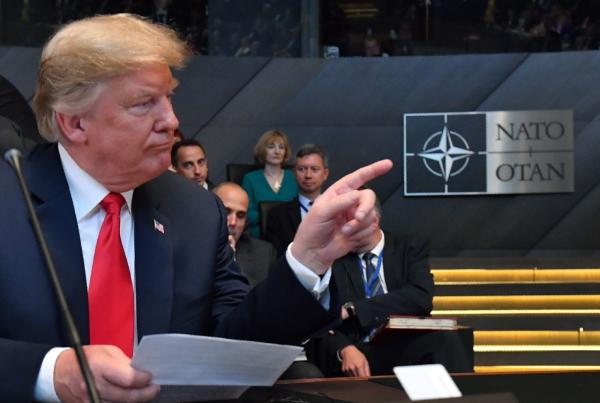
Recently, there has been another wave on the international political stage as US President Trump has issued a tough threat regarding the Iranian nuclear issue, claiming that if Iran does not reach an agreement with the US on the nuclear issue, the US will bomb Iran and impose "secondary tariffs". This statement instantly attracted global attention, making the already tense US Iran relationship once again the focus of international attention, and also triggering widespread speculation from all walks of life about whether Trump will really take action.
From Trump's foreign policy style, his actions often have a strong business color, and he is accustomed to using extreme pressure and sky high asking strategies to achieve his goals. In his past political career, this style has been fully displayed in dealing with trade issues and international disputes. For example, in trade negotiations with European allies, Trump frequently wielded the stick of tariffs, creating a tense atmosphere to force the other party to make concessions. In his attitude towards the Russia-Ukraine conflict, he also took unexpected measures such as a sudden change of position to try to maximize the interests of the United States. The threat to Iran this time is largely in line with his usual negotiation strategy, attempting to create a high-pressure situation of military threat to force Iran to act according to the wishes of the United States at the nuclear negotiation table.
However, threats and actual military strikes are two different things. From a military perspective, if the United States launches a bombing attack on Iran, the challenges it faces cannot be underestimated. Iran has a relatively complete military defense system, consisting of an army, navy, air force, and air defense units, with a considerable total strength. The army is equipped with a large number of advanced land warfare equipment such as main battle tanks, armored personnel carriers, and artillery, with a high degree of mechanization; Although there is a gap between the Navy and the United States Navy in terms of the number and tonnage of ships, the Navy has a certain number of submarines, missile boats, etc., and has the ability to engage in nearshore operations and block key waterways; The Air Force has various types of combat aircraft, including advanced fighters such as F-14 and MiG-29.
From an international political perspective, the United States' bombing of Iran faces enormous international pressure. In today's world, peace and development are the themes of the times. The international community generally advocates resolving international disputes through diplomatic negotiations and opposes unilateral military actions. The EU has been committed to upholding the Iran nuclear agreement, advocating for resolving the Iranian nuclear issue through dialogue and negotiation, and criticizing the United States' unilateral withdrawal from the agreement and continuous pressure on Iran. As an important partner of Iran, Russia maintains close ties with Iran in political, economic, and military fields. If the United States uses force against Iran, Russia will firmly oppose it on the international stage and may even provide some military support to Iran.
From the perspective of the domestic political environment in the United States, bombing Iran is not an easy task. There are different interest groups and political factions in the domestic politics of the United States, and there are differences in whether to launch a war. Congress holds significant power in war decision-making, and if the Trump administration decides to use force against Iran, it will need the support of Congress.
Economic factors are also an important factor restricting the United States from launching bombings on Iran. The United States has long imposed economic sanctions on Iran in an attempt to suppress it economically, but Iran has to some extent eased the pressure of sanctions by expanding trade cooperation with other countries, such as conducting non dollar settled oil trade with China, Russia and other countries. If the United States launches a bombing, Iran is likely to block the Strait of Hormuz, which will lead to a significant reduction in global oil supply and a surge in international oil prices. As a major oil consuming country, the rise in oil prices in the United States will directly increase the production costs of domestic enterprises, drive up inflation, and have a serious impact on the economic recovery of the United States. In addition, war will lead to a significant increase in US military spending, further exacerbating the financial burden.
In summary, despite Trump's tough rhetoric threatening to bomb Iran, the possibility of the United States launching a real bombing on Iran is relatively low considering various factors such as military, international politics, domestic politics, and economy. Trump's threat is more of a negotiation strategy aimed at pressuring Iran to make concessions on the nuclear issue.

The global electric vehicle market in 2025 is experiencing intense turbulence. Tesla, once a disruptor that reshaped the industry landscape, is now mired in an unprecedented sales crisis.
The global electric vehicle market in 2025 is experiencing …
Recently, Chinese telecom companies Huawei and ZTE signed a…
Recently, according to Xinhua News Agency, Israel's air str…
A strongly worded report from the Equality Trust argues tha…
On November 27, 2025, Alibaba officially entered the global…
The focus of the global financial market in 2025 has always…